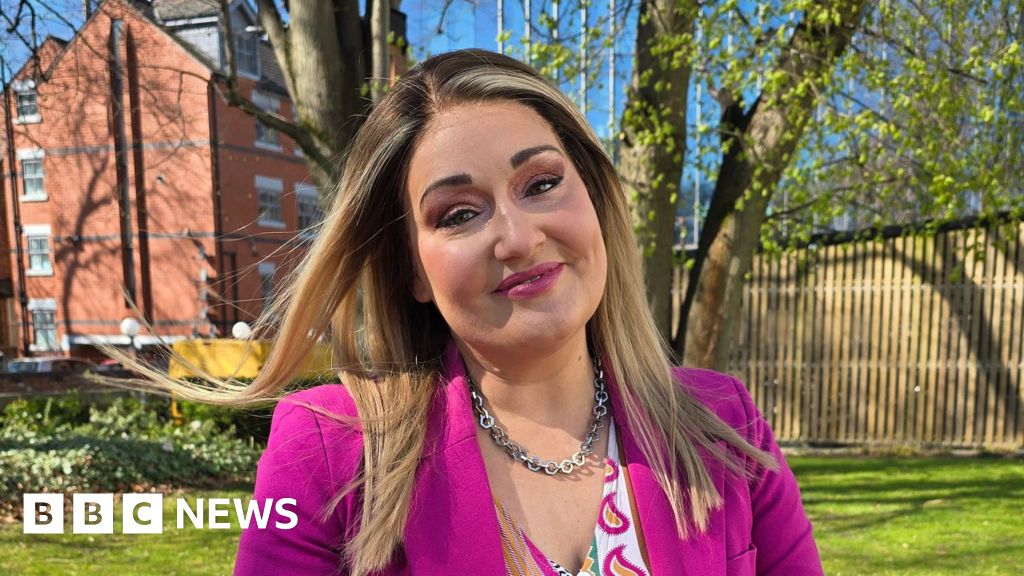News, Greater Manchester

A doctor given 18 months to live in 2015 has celebrated the decade since her devastating cancer diagnosis by ticking off a bucket list and says “every day is precious”.
Ten years ago, Mari Isdale, from Eccles, Salford, was rushed to the A&E department during her shift at Tameside Hospital after suddenly experiencing crippling stomach pains.
The then 31-year-old said a scan found a tumour “the size of a watermelon” in her abdomen and she was told she had stage four bowel cancer which had spread to her ovaries.
Now 42, she is backing new £5.5m research to transform bowel cancer care by finding kinder and better treatments.
Ms Isdale had to have part of her bowel as well as both of her ovaries removed as part of her treatment, which she said destroyed her dreams of having children of her own.
She faced four major operations to remove multiple tumours in her abdomen followed by chemotherapy and targeted therapy drug cetuximab, which was in an early stage of development.
Ms Isdale, who lives with husband Babur Ahmed and their dog, Angus, said: “When they first scanned me to see what was causing the pain I saw this huge mass the size of a watermelon.
“I’d no idea how it was hiding in there but I knew straight away it was bad.
“It was very unexpected as I was healthy and I had no family history of cancer. Despite this, I still found myself with advanced bowel cancer.”
After a brief period of remission in 2018, the disease spread to her lymph nodes and she has been back on treatment since 2020.
She is thankful to Cancer Research UK which helped develop and fund cetuximab for “every precious beautiful day” she has enjoyed since.
“Thanks to research I have been able to spend lots of special time with my family and loved ones making special memories,” she said.
Ms Isdale has ticked off what she calls her YOLO (You Only Live Once) list which has seen her travel the world including New York, a family trip to see the pyramids in Egypt and hot air ballooning with her husband over the fairy chimneys in Turkey.
“I was able to go on to live an amazing, fulfilling, active and happy life despite cancer,” she said.
“I now don’t wait for plans; on my good days I really live life.”
‘A lot of hope for the future’
She is now lending her support to a new £5.5m initiative, part funded by Cancer Research UK, made up of a newly formed world-leading research team that aims to transform bowel cancer care.
The CRC-STARS* initiative will bring together over 40 research experts joining forces from the UK, Spain, Italy and Belgium to find kinder, better treatments for the disease, which kills 16,800 people in the UK every year.
Using combined expertise across multiple research areas, the project will pair clinical trial data with cutting-edge technology.
Cancer Research UK chief executive Michelle Mitchell, said it was of the most comprehensive projects for bowel cancer it had supported.
“Together with our funding partners – the Bowelbabe Fund, Bjorn and Inger Saven and the FCAECC – we can empower the CRC-STARS team to speed up the development of personalised treatment for people living with bowel cancer, bringing us closer to a world where people live longer, better lives, free from the fear of cancer.”
Cancer Research UK’s National Biomarker Centre in Manchester is set to receive more than £550,000 as part of the initiative.
Dr Florent Mouliere who is leading the research team in Manchester said the team was “very excited” to be involved.
He said over the next five years the team would analyse blood and plasma samples from colorectal cancer patients at different stages of treatment, then look at DNA to identity patterns to discover how they resisted or responded to treatment.
He said liquid biopsy was less invasive than a tissue biopsy and they could take multiple samples from the same patient “so we can start to understand the evolution of cancer and create the next generation of more personalised treatment”.
Ms Isdale said the project “gives a lot of hope for the future” and believed it would make a difference to patients “because at the moment we are offered a range of treatment, and we hope for the best, but we don’t know if they will work”.

